2024 kicks off with the World Folic Acid Awareness Week Webinar
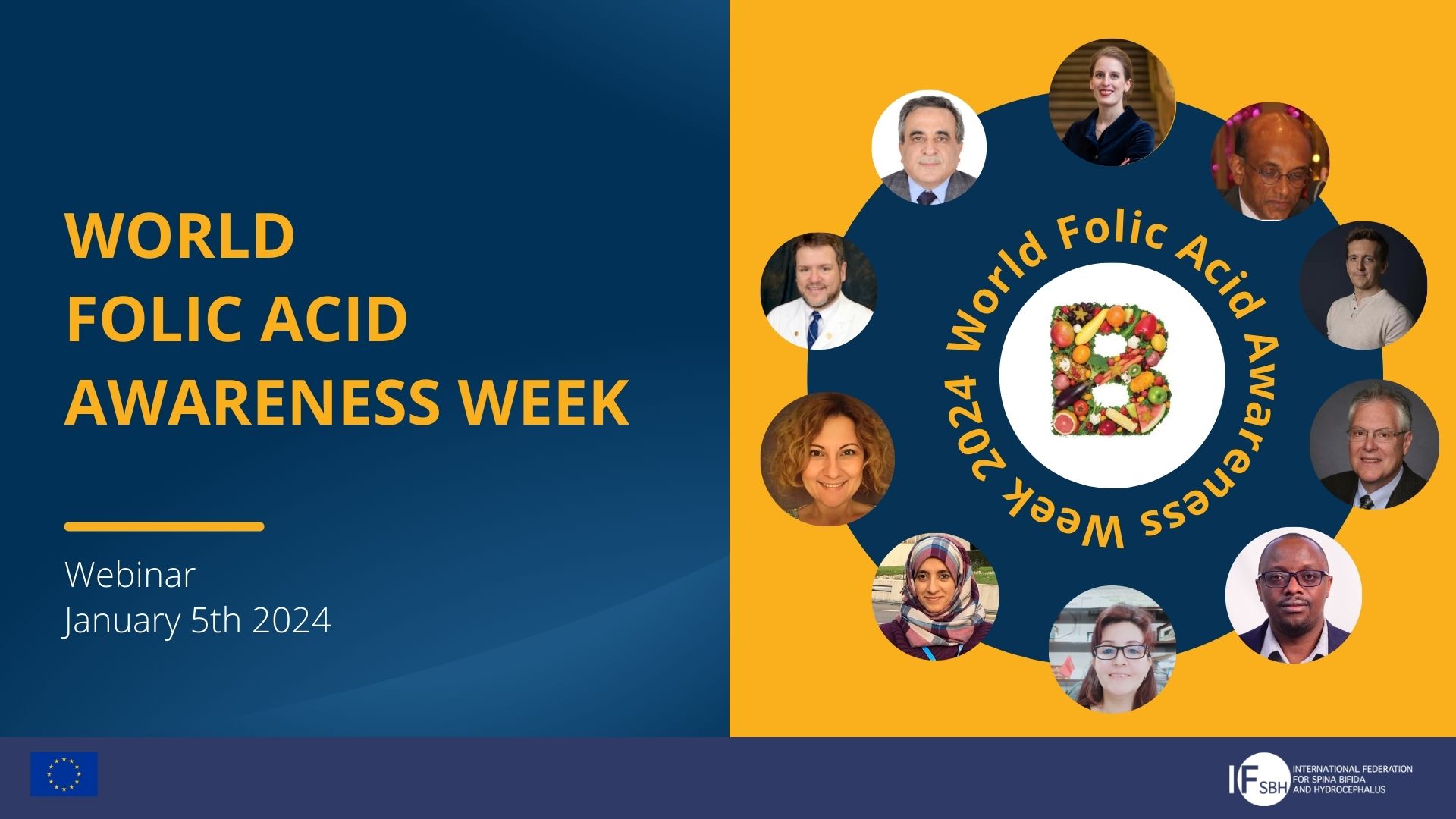
Each year in January the International Federation for Spina Bifida and Hydrocephalus (IF), together with partners across the world, celebrates the World Folic Acid Awareness Week (WFAAW). The WFAAW is a part of the IF Global Prevention Initiative (IFGPI), a campaign to raise awareness on how to reduce the prevalence of Neural Tube Defects (NTDs) including Spina Bifida and Hydrocephalus, by promoting policies and actions to ensure that all pregnancies begin with enough folate to support the development of the foetus. By advocating for access to staple foods fortified with folic acid, folic acid supplements and foods rich in folate for all.
As in previous years, IF concluded the WFAAW with an online event, a webinar, which this year had the title “Let’s Thrive Impact!”
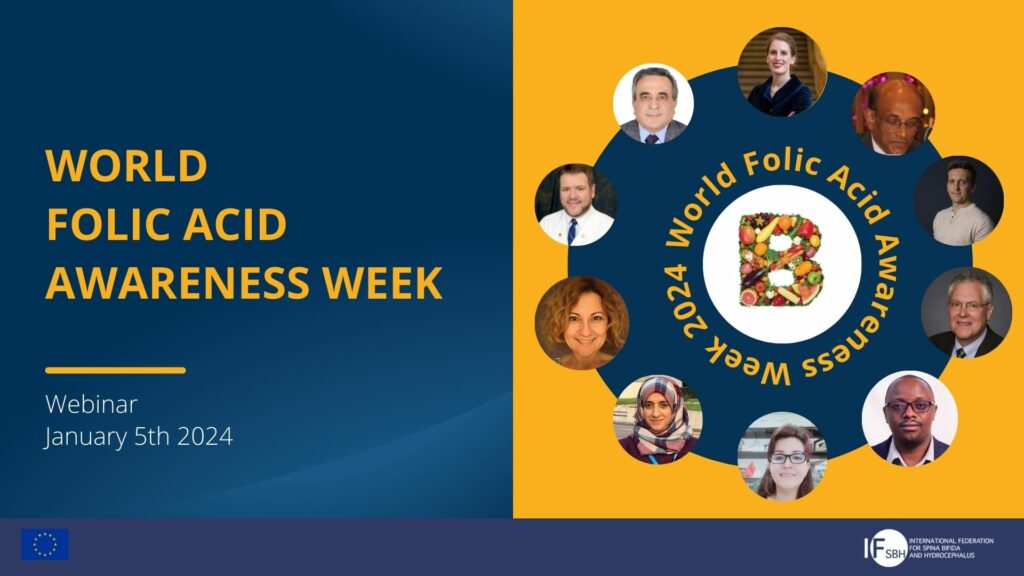
After welcoming words from the Secretary General of IF Dr Sylvia Roozen, Dr Papatya Alkan Genca, a Board Member of IF, took the floor. Dr Genca set the tone for the event by emphasising the importance of understanding and promoting a human rights approach to folic acid awareness and the reduction of NTDs including Spina Bifida and Hydrocephalus worldwide.

The first half of the webinar continued with presentations from a wide variety of expert speakers. Beginning with the international perspective from Mr Oliver Camp, Senior Associate at the the Global Alliance for Improved Nutrition. Mr Camp, with his expertise in food systems and fortification, highlighted that progress in reducing micronutrient deficiencies has been limited. However, Mr Camp also stated that there is increased awareness amongst the international community about the challenges that food systems will face due to climate change and discussed the efforts undertaken to incorporate micronutrient deficiencies into international actions on climate change.

The webinar then moved on to a regional perspective. Dr Ayoud Al-Jawaldeh, Regional Adviser in Nutrition at WHO-EMRO spoke about food fortification and prevention of micronutrient deficiencies in the Eastern Mediterranean. Demonstrating that countries in this region that have implemented effective fortification of staple foods with folic acid have achieved drastic reductions in the prevalence of NTDs including Spina Bifida as well as fatal birth defects. Dr Al Jawaldeh concluded with a set of recommendations to reduce micronutrient deficiencies.
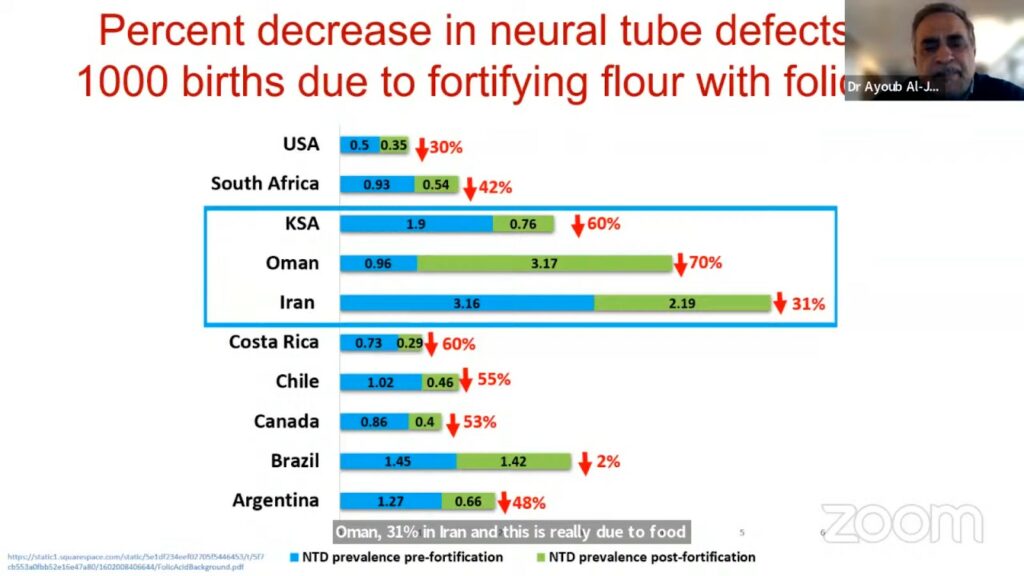
The webinar then moved on to exploring the perspective on the national level through the experiences of two countries, Morocco and Oman, on food fortification. This was provided by Dr Amina Barkat Neonatologist at University Mohammed V Rabat Morocco and Dr Salima Al Mammary, Director of the Nutrition department in the Ministry of Health Oman. Dr Barkat and Dr Al Mammary presented on the experiences and lessons learned from implementing fortification of staple foods with folic acid in Morocco and Oman. Giving an invaluable insight into the different challenges that countries face and how successful and sustainable food fortification programs can be implemented. Exchange of expertise and experiences between countries is essential in order to achieve global progress. The success of advocacy for policies on food fortification depend on their uptake and implementation on the national level.
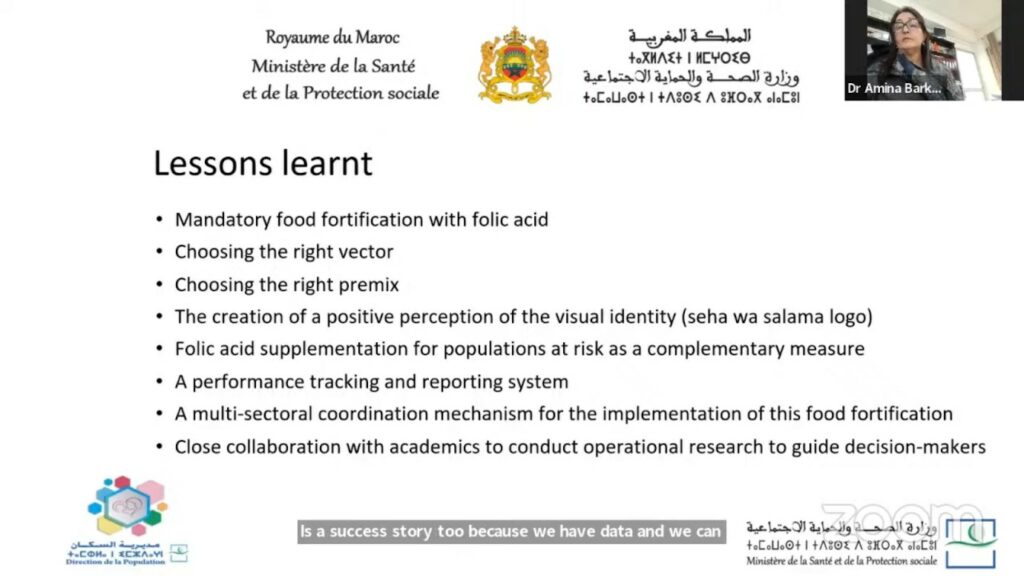
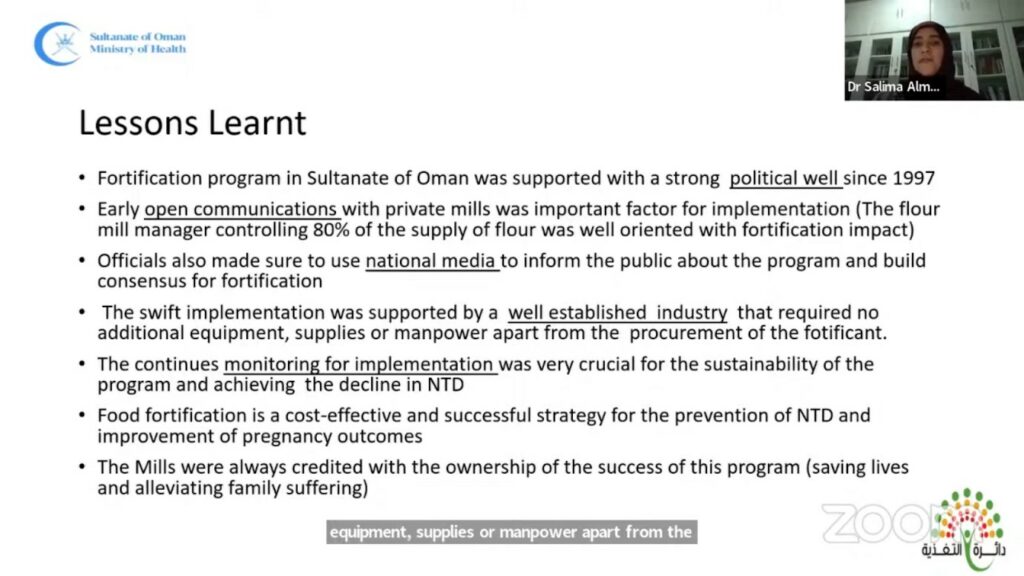
Which provided a good jumping off point to the topic for the second half of the seminar. This part of the webinar focused on advocacy, on information and tools that can be used to further the advocacy and how different groups can get involved. This topic was kicked off by Dr Kribanandan Gurusamy Naidu, chair of the Rotary District Action Group for SBH and Vice President of IF member association in Malaysia, SiBIAM. Highlighting the need for advocacy and how societal actors, including service clubs can advance it.
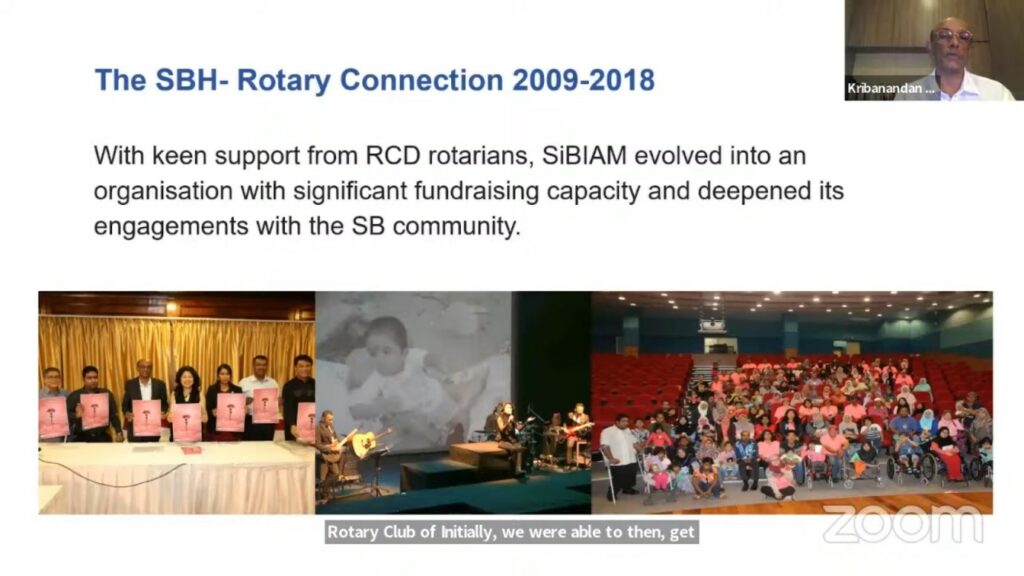
A multisectoral effort is crucial for folic acid awareness. To provide inspiration on how healthcare professionals can get involved, Dr Jeffrey Blount Pediatric Neurosurgeon at the Children’s Hospital of Alabama and Chair of GAPSBi-F Consortium spoke about how neurosurgeons can advocate for both improved prevention as well as health care for Spina Bifida and Hydrocephalus. Dr Blount also presented on the activities that he has undertaken with the GAPSBi-F Consortium. Highlighting in particular the WHA76.19 Resolution which IF, together with partners including GAPSBi-F Consortium successfully advocated for.
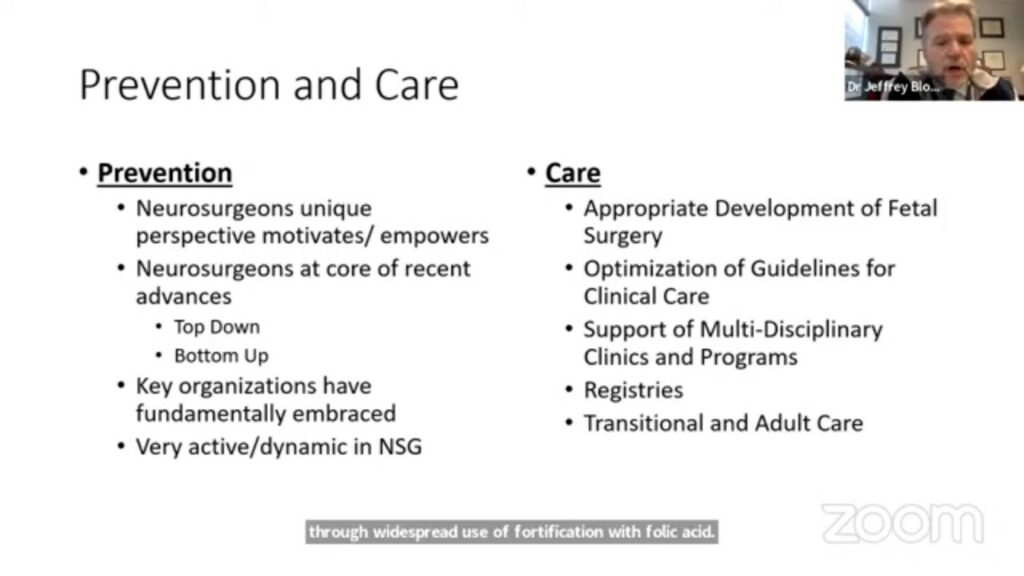
Expanding on this topic Scott Montgomery, Director of the Food Fortification Initiative (FFI) presented on how cost benefit analysis of flour fortification can be used as an important advocacy tool. Demonstrating how food fortification has been proven to be one of the most cost-effective development investments. A fact that is not publicised enough and awareness of which is invaluable in building political support for effective policies for the reduction of micronutrient deficiencies and their consequences, in particular NTDs.
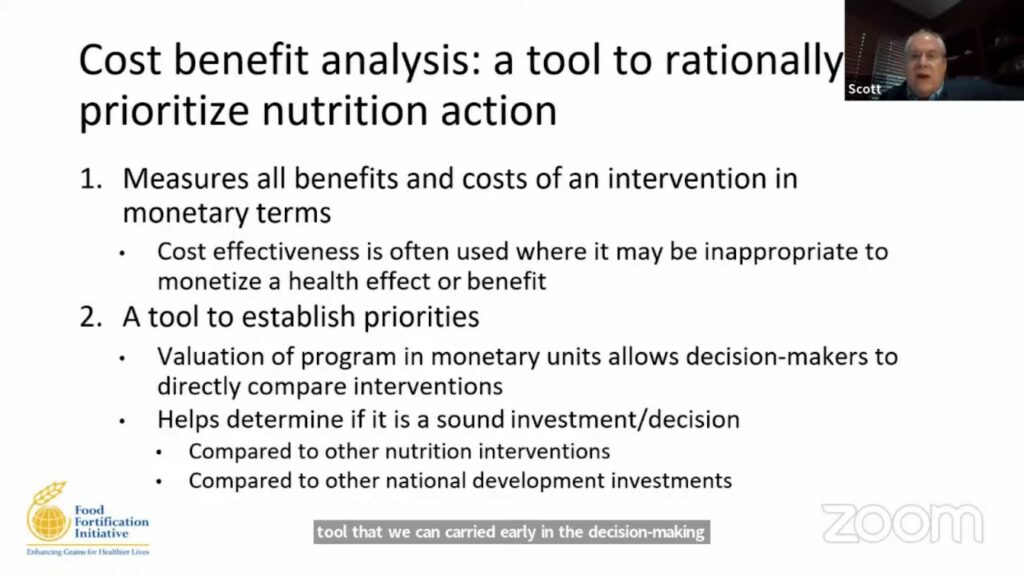
The last speaker of the webinar was Raymond Chikomba, Senior Nutrition Specialist at the Southern African Development Community (SADC). Mr Chikomba gave a very informative presentation on the SADC regional food fortification agenda and the role of regional food fortification standards. Providing an excellent example of how regional integration can support and advance food fortification on the country level.
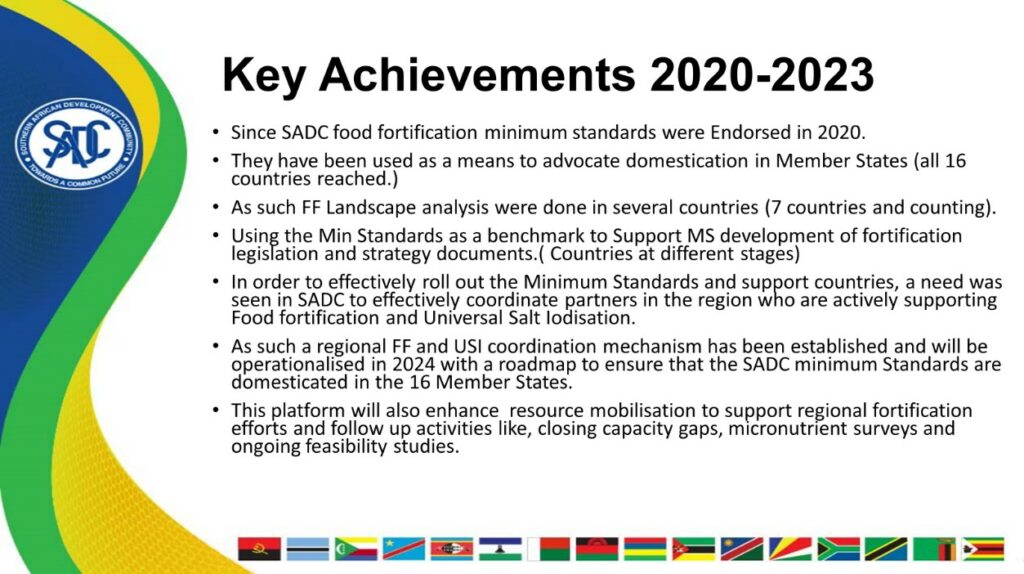
These incredibly informative presentations by these expert speakers help to raise awareness of the importance of folic acid in advancing public health through policy actions on the national, regional and international level. As well as providing guidance and materials to individuals and organisations to use for advocacy and awareness raising. Highlighting the importance of ensuring a human rights approach to advocacy, cross-country twinning, international, regional and multisectoral collaboration. How these factors all work together to create effective policies on the national level. A perspective which IF will continue to spread among its Member Organisations and incorporate into its own advocacy work. The world still has a long way to go before achieving significant reduction of NTDs including Spina Bifida and Hydrocephalus. Advocacy with a human rights approach for folic acid awareness and action remains a vital topic for public health and the rights of persons with disabilities.
The webinar can be watch in its entirety on IF’s youtube channel here

